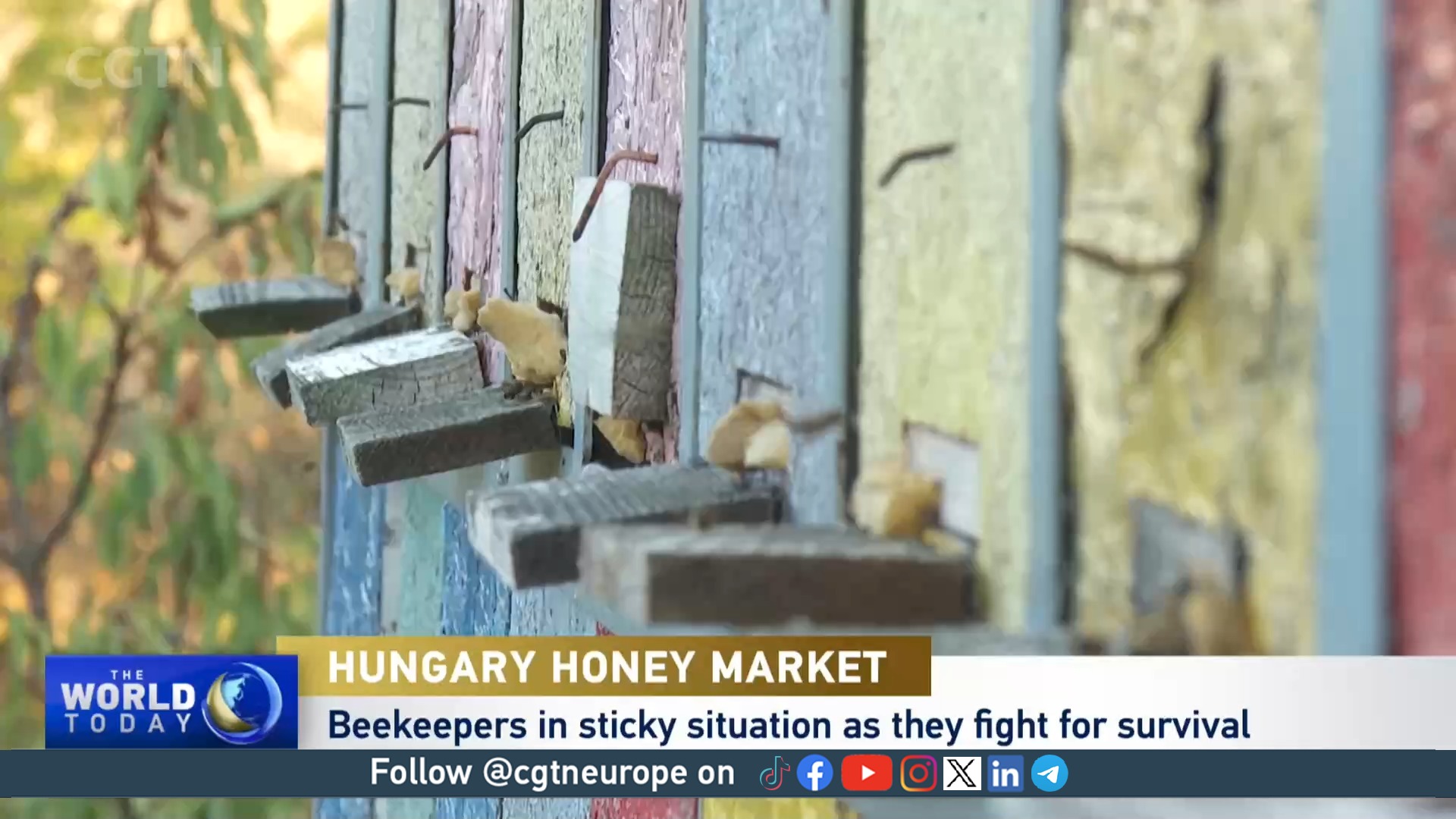02:50

Hungary is the fifth-largest producer of honey in the European Union, but the country's beekeepers are fighting for survival as climate change, cost and competition threaten their ability to produce and sell their product.
The gentle hum of bees is a soothing melody for Hungarian beekeeper, Daniel Patkos. Since 2008 he has dedicated himself to beekeeping but the last two years have been his toughest. "Many beekeepers in Hungary now have to take a second job," he said. "I had to do that. Others are simply quitting the business."
The EU is the second largest consumer globally after the U.S. The bloc should be fertile ground for beekeepers, but that isn't the case. "The beekeepers are in trouble, first because of climate change, then globalization, the conflict in Ukraine and the honey market," explains Peter Bross, Chairman of the Hungarian Beekeepers Association.
READ MORE
Tourists return to Hungary
Swiss Alps loses 10% of glaciers in two years
1,600 species under threat in the UK

Hungary's beekeepers are struggling to survive as climate change, falling prices and an influx of fake honey push their businesses to breaking point. /Pablo Gutierrez/CGTN
Hungary's beekeepers are struggling to survive as climate change, falling prices and an influx of fake honey push their businesses to breaking point. /Pablo Gutierrez/CGTN
Fake honey and falling prices
Beekeepers say the Ukraine conflict was the latest problem for an industry already under pressure. The EU's decision to allow duty-free Ukrainian honey imports to the bloc has caused a substantial decline in prices. In the past, beekeepers could fetch $3.17 for a kilo of honey, but now it's being sold for $1.58.
"We cannot make a living from beekeeping, if this tendency continues the EU will be in a real problem," said Bross.
The conflict isn't the only problem facing beekeepers. Fake honey – a diluted version mixed with sugar syrups – has been discovered in approximately half of European market imports from third countries, according to an EU Commission investigation in March.
This has further diminished the EU beekeeper's profits. "This type of honey is still in the market, they are still in the jars, still on the shelves of the stores, so people are still buying and eating these faux honey," Bross adds.

Daniel Patkos has been a beekeeper in Hungary since 2008, but last year he was forced to start a second job in order to make enough money. /Pablo Gutierrez/CGTN
Daniel Patkos has been a beekeeper in Hungary since 2008, but last year he was forced to start a second job in order to make enough money. /Pablo Gutierrez/CGTN
Climate change
Hungary has 1.2 million bee colonies, but their numbers are rapidly declining due to the impact of climate change. The increase in winter temperatures disrupts the balance between plants and bees, reducing the food supply and making ecosystems unfit for the survival of bees.
Hungarian beekeepers say they're feeling the impact of climate change on their bottom line. More of them are now feeding their bees at apiaries due to the shortage of appropriate flora, pushing up costs and endangering their industry.
Patkos says the future of his industry is more uncertain than the species. "Bees have inhabited this planet for far longer than humans; their ability to adapt is unquestionable. The true question is, will we, as honeykeepers, be able to adapt to this reality?"
Subscribe to Storyboard: A weekly newsletter bringing you the best of CGTN every Friday